Curriculum Coach Spotlight: Matt
A Curriculum Coach is a business professional who offers their expertise within the Partners Worldwide network and leads and facilitates our business training strategy in a country or region.
There are over 25 of these Coaches in 15+ countries. They are wildly talented and passionate men and women, excellent trainers, experienced businesspeople, and most importantly, they have a heart to serve and to “coach” others. They don’t simply teach our curriculum; they train people to train people, through our proven Train-the-Trainer approach.
These Curriculum Coaches are the secret sauce that makes our business training successful throughout our global network. Since these people are so extraordinary and vital to the success of the PW network, we decided to highlight them and tell their stories. Thus far, we have highlighted Carmen, Tendai, Joseph, and Simon.
Today, we are excited to feature Matt Rutter, from Moldova.
MEET MATT
I first met Matt Rutter in 2015 and explained to him that, unfortunately, Partners Worldwide does not work in Moldova. In fact, I remember asking him, “Where exactly is Moldova?”
Now three years later, Matt has become one of the most influential members of our global business training network and a vital leader in curriculum development, not just for PW but for several global organizations working to end poverty through business.
What’s more, he has become a friend, an amazing teammate, and someone I have learned a great deal from. And, now we can proudly say that we DO in fact work in Moldova. But we’ll get into all that later.
Matt grew up near Toledo, Ohio, attended Hope College in Michigan, and then headed to Moldova in 2012 with the US Peace Corps.
He’s served in various business consultancy roles in Moldova, working with the local Chamber of Commerce, co-founding a Christian business incubator organization, and leading a number of start-ups.
He’s a guru in the “lean start-up” methodology, both as a trainer and practitioner, and has developed highly impactful business curricula on his own and with PW. He’s learned Russian and Romanian along the way as well.
Matt has been a Curriculum Coach for three years now and has led Train-the-Trainer events in Ukraine (with HOPE International) and Albania (with Operation Mobilization), as well as in Moldova.
He’s coached countless trainers and leaders in our global network on effective curriculum implementation and how to train trainers. In 2018, he played a pivotal role in revamping and writing our brand-new Microenterprise Curriculum.
Currently, Matt serves as General Manager for Enspire Development, and he and his wife Caterina live in Moldova’s capital city of Chisinau.
A CONVERSATION WITH MATT
Tell us about your experience working in business development in Eastern Europe.
I arrived in Moldova in May 2012, with an idea of international development that consisted of serving people who looked very different from me and doing physical work like digging wells.
When I was sent to Moldova—which is the poorest country in all of Europe—I was in an area that didn’t have the type of poverty that I was expecting to confront, and that had white people.
I found myself in a business coaching and consulting role rather than doing the work, like implementing clean water or sanitation projects, that I associated with international development.
That started a long process of changing my paradigm of what it means to serve God around the world, and how business is so often the solution that is most needed to address the root problems of poverty.
When I first arrived, I was working with the Gagauzian Chamber of Commerce as an Economic Development Officer. I was told, “In this region, there are not enough jobs, the infrastructure is weakening, and we need to encourage entrepreneurship locally so people stay in Moldova, start companies, and create jobs.”
But the Chamber of Commerce didn’t have much of an idea of how that would happen. I started talking to people about the lean startup methodology, and asked: “What businesses can we start without receiving investment money?” It was clear that very little aid and investments were flowing into this part of the world.
I spent about three years working with the Chamber of Commerce developing a business incubator, a business education center, and holding a number of conferences for start-ups, especially focused on young IT companies.
In 2015, I helped co-found an organization, Kingdom Paradigm, focused on using business as a tool for ministry and economic growth in Moldova, with four key activities: coaching, training, networking, and investment.
It was a few months after launching Kingdom Paradigm that I happened to be Grand Rapids, MI, and met with Partners Worldwide. We began talking about ways to strengthen the training element of Kingdom Paradigm and other related business training programs in Moldova.
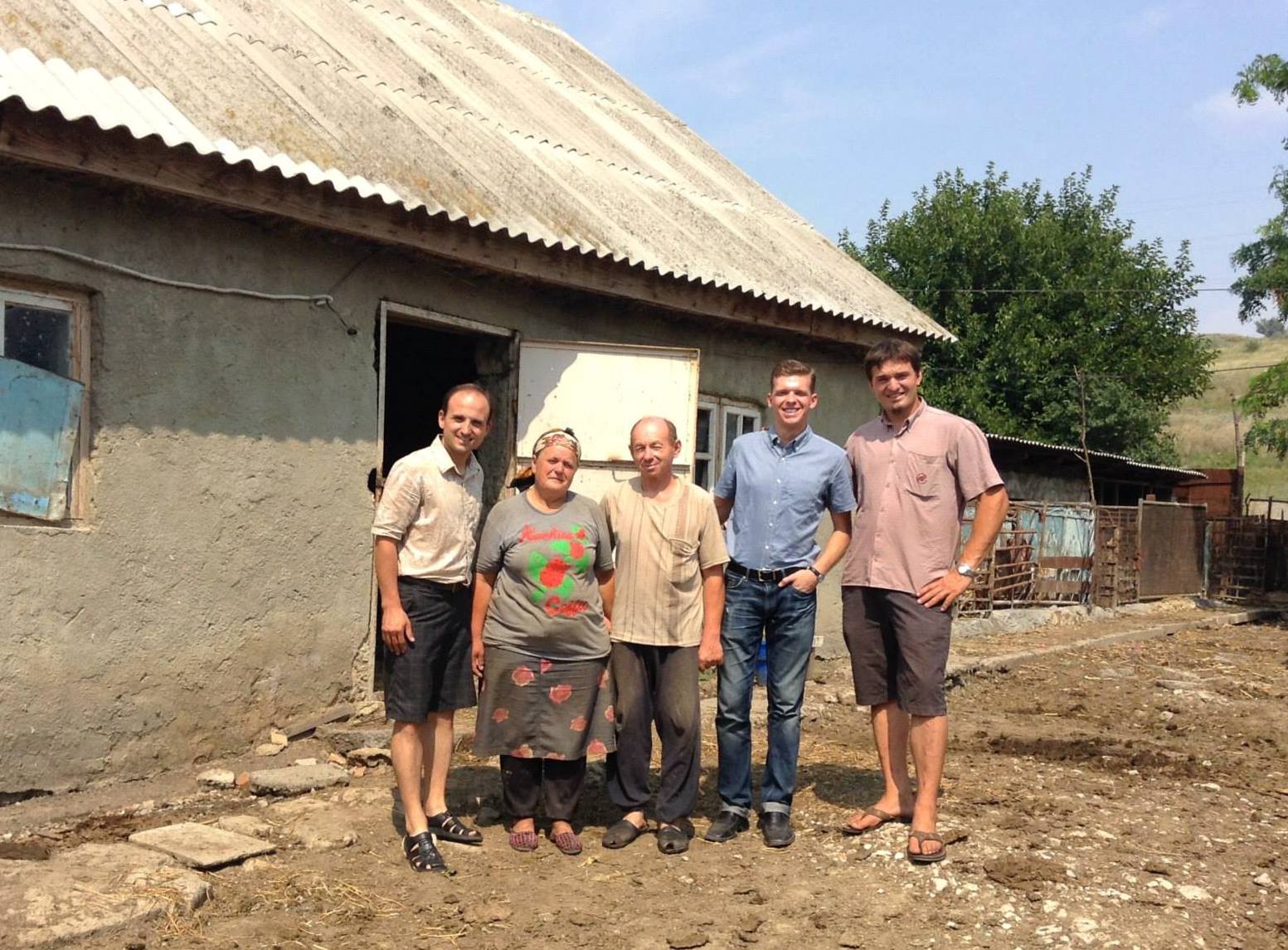
A lot of people don’t know much about Moldova, or Eastern Europe for that matter. Tell us about your context, and why business development and job creation are so important there?
Moldova is one of the fastest shrinking populations in the world, with so many people fleeing the country looking for jobs and opportunities elsewhere. Unfortunately, many of those people are exploited, are likely to experience human trafficking, and still face poverty even after they relocate.
In fact, Moldova has very high human trafficking rates. This is one of the main reasons we started Kingdom Paradigm—to create job opportunities in the nation for young people and persuade them to stay in Moldova and avoid situations where they would fall into trafficking.
Moldova is a post-Soviet country, and there is still today a lot of caution when approaching capitalism or considering business topics; to call someone a businessman is deemed an insult, it means someone who is prone to steal and lie. The Soviet mentality is still strong, especially among older generations. The system of how the economy works in rural parts of Moldova is still developing, and it’s a highly agricultural economy, with extremely rich soil throughout the country.
Despite being the poorest country in Europe, Moldova is not often a place where development organizations invest their time and resources.
Because it is technically part of Europe, the conception is that the needs aren’t the same as places like Latin America and Africa, even though the poverty rates and social issues are often the same.
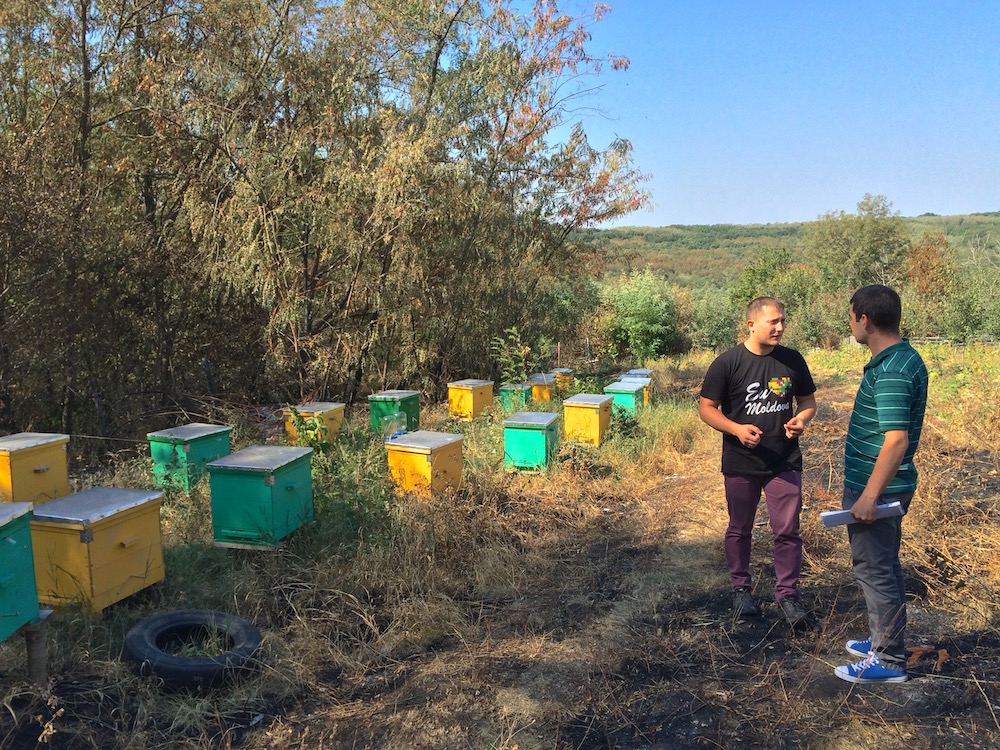
What have you enjoyed most about being a PW Curriculum Coach over the last few years?
I’ve enjoyed seeing how God is stirring up a desire in people to use their business as a mission.
It’s exciting to think that through a Train-the-Trainer event, a whole new wave of businesspeople—as ministers of the gospel—are being equipped to go out and change a culture and the nation, and impact the church in ways that were previously inaccessible in traditional forms of ministry.
Through being part of this work, I’ve been able to join in what God is doing, in his mission of resourcing people who are called to business.
These events, like Train-the-Trainers, always garner a lot of energy and passion. I’m always encouraged by the businesspeople who attend who are so humble and eager to learn. And as locals, they are far better positioned to reach their communities with the gospel than any foreigner could be.
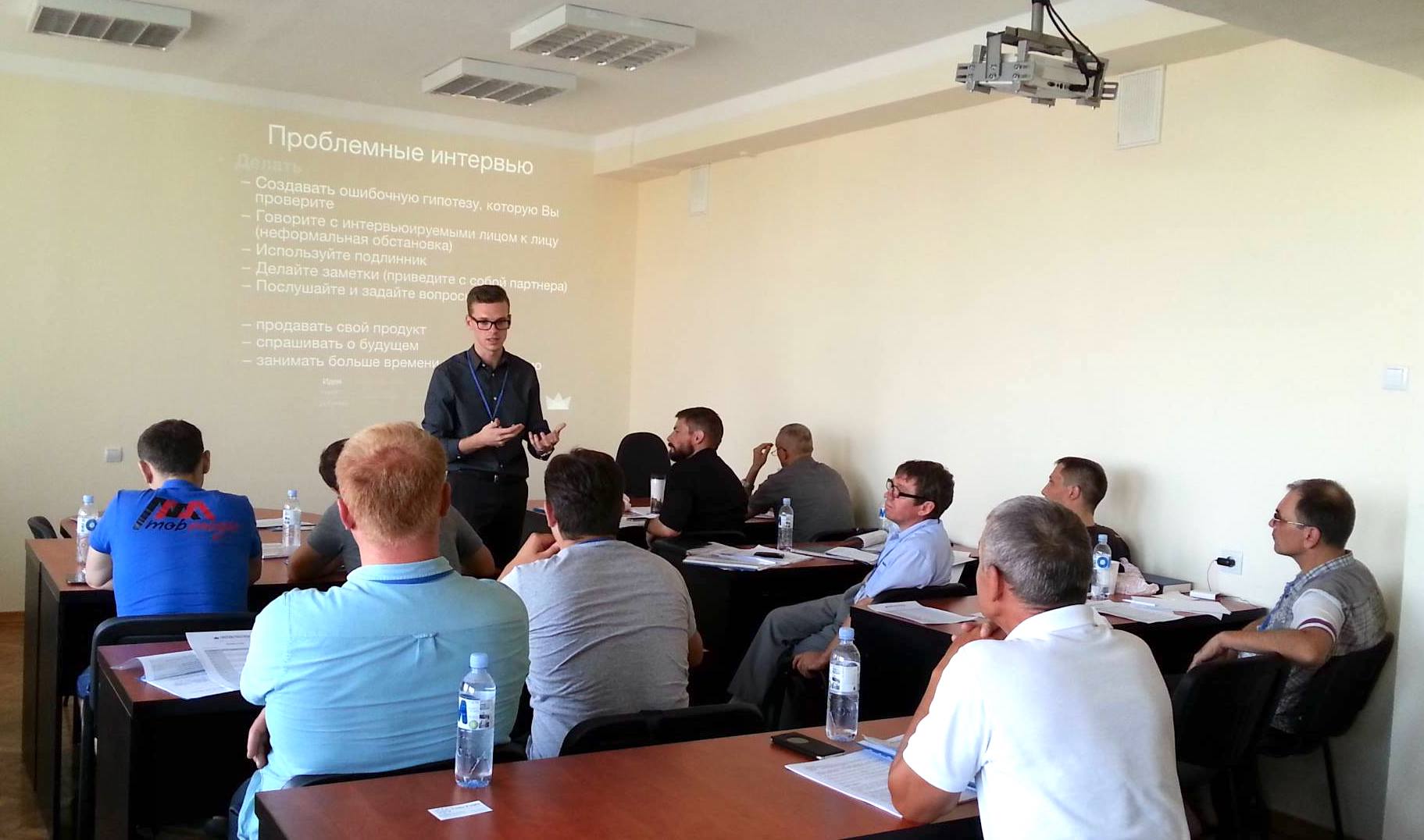
Let’s switch gears to the Microenterprise Curriculum. You played a crucial role in developing this new tool; in fact, it’s not an overstatement to say you wrote pretty much the entire thing (with an amazing global team working alongside you). What was that process like, and why did we undertake this in the first place?
PW had been using an SME (Small-to-Medium Enterprise) curriculum for many years, often with clients that had a wide range of backgrounds. We found the SME curriculum was working great for those with a higher educational background, but those without were often discouraged; the curriculum and training were not allowing for the same level of growth for them.
We attempted to use a shortened version of the SME curriculum, but it still didn’t seem like it was offering the type of support needed by those entrepreneurs who had less experience or education.
That’s when we (PW staff and Curriculum Coaches) started discussing how to change that.
One of the first steps was talking to our friends at HOPE International (shout-out to Gillian Wilkinson!) about mindset-based trainings for entrepreneurs with less experience and lower educational backgrounds.
These conversations eventually led to the core of what became our Microenterprise Curriculum, rooted in cutting edge research on behavioral science and heuristics.
We sought to develop a curriculum that gave very practical skills and mindsets for decision making to entrepreneurs who have had less access to formal education.
We also went out and interviewed Curriculum Coaches and trainers from around the world, and compiled a list of mindsets needed and best practices learned from other organizations.
We distilled this to a list of 22 core mindsets that formed the structure of the Microenterprise curriculum. Those trainers helped us build the curriculum by providing stories, resources, discussion questions, and ideas for how to help reinforce those mindsets.
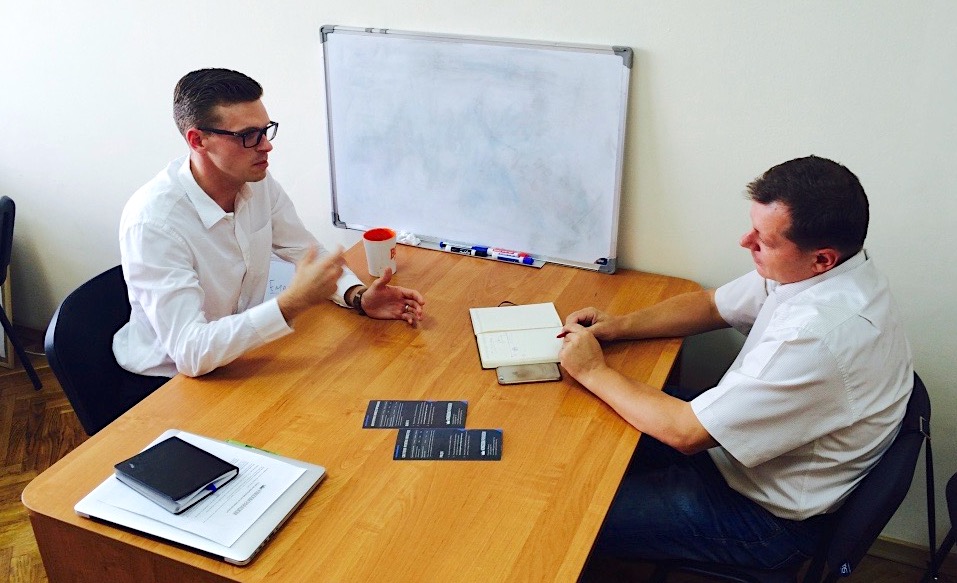
As we’ve begun to roll out the new Microenterprise Curriculum, what has that looked like and what role have you been playing in it?
The first step has been translating and contextualizing the material, which has been taking place since October of 2018. The curriculum is now finalized in at least five languages, with several more in process.
Implementation began in December of 2018 through Train-the-Trainer programs. I also was recently able to lead the first Microenterprise Train-the-Trainer with our friends in Ukraine, in collaboration with HOPE International.
It’s extremely exciting to see this tool being used, and in such high demand, across the world!
Many of PW’s local partners have expressed that their business clientele falls into more of a microenterprise or informal economy sector, rather than SME, and this curriculum suits their needs better as it is much more practical and less theoretical.
Through conference calls and virtual training, I’ve coached numerous other Curriculum Coaches, LCI leaders, Business Affiliates, and PW staff in how this Microenterprise Curriculum can be best utilized, which has been a great opportunity.
Let’s talk more about those strategic alliances like you just mentioned with HOPE International. You’ve led Train-the-Trainer sessions throughout Eastern Europe with HOPE International, Operation Mobilization, and others, and have served as a catalyst for those cross-organizational partnerships.
One of the things I’ve really loved about working with PW is the openness to collaborating with organizations and networks that are like-minded and already doing similar work.
Back in 2017, I went to Ukraine with HOPE International for the first time to lead a Train-the-Trainer with the SME curriculum (pictured below). I began working with HOPE’s local staff in Ukraine and their US-based staff to look at how the PW curriculum could help equip loan officers to teach or mentor businesses in their portfolio.
As a result, the loan officers were able to provide more value to the clients they are working with, and this really opened up the door for more faith-based conversations, too, especially with HOPE’s Spiritual Integration team. PW’s curriculum has been a really great fit for HOPE because there is so much Biblical and faith-based content built into it.
After the initial Ukraine training, HOPE began using the PW SME curriculum in a few other locations, and eventually helped us think through and create the Microenterprise Curriculum, which they’re also now using. They leveraged their expertise, along with the expertise throughout the PW network, and we worked together to create something truly unique and valuable.
With Operation Mobilization, I was able to coach some business leaders in Albania and the Balkans region through a similar Train-the-Trainer event. These leaders have built a large network of relationships over several years and were looking to add a “business as mission” element to their work.
Strategic partnerships like this have allowed us to achieve more impact than we ever could alone.
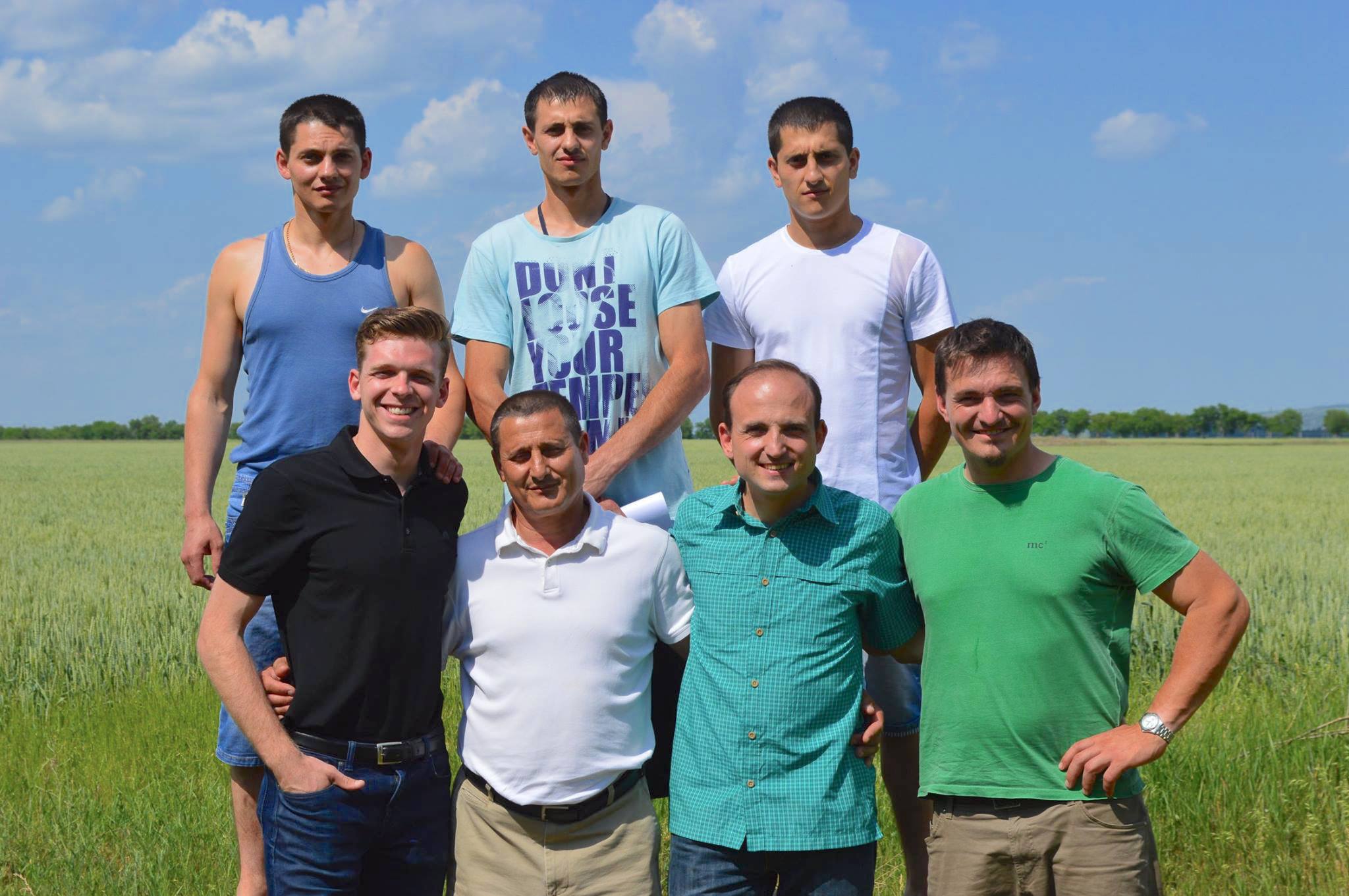
Our work at Partners Worldwide would not be possible without dedicated partners like Matt. Creating a world without poverty requires our combined efforts and a holistic approach. Exemplary individuals like Matt remind us of the impact just one person can have, as well as the multiplying effect of our collaborative efforts.
From Moldova—to the rest of our global network—we are honored to partner with such passionate businesspeople as we pursue a world without poverty!